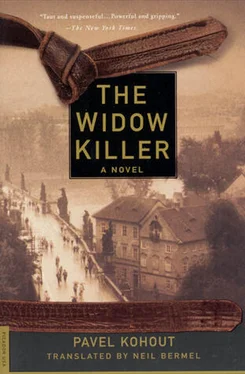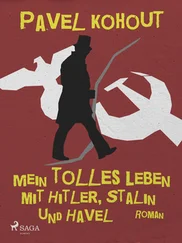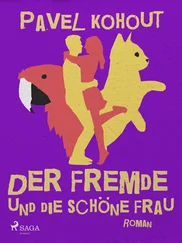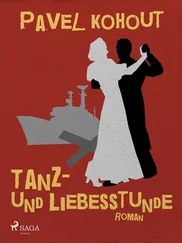Good evening, my beloved, he said and sat down across from her; so it’s finally happened: Tetera (remember? — who liked you so much that I got jealous and had to let you know how I felt about you), our former garage manager and now the commander of Prague’s National Security forces, had his candidate, but Svoboda, now a general and deputy interior minister, wouldn’t have it otherwise — of course, it was Beran who decided it for me; believe me, Jan, he told me this morning at the hospital, you’d be my choice, he said, if I had one, just be careful, Jan, he went on, and that was all; I could only assume he was warning me not just about Tetera, but Svoboda too — you see, he’s so used to staying outside politics and was so insulted by his short imprisonment that he sees filth wherever he turns, especially among the Communists; I tried to explain that these days there are riffraff everywhere and that there are Communists and Communists (I’ve seen Svoboda make order in a lion’s den, and he accepted me in a uniform he personally loathes, despite what his lifelong comrades said); those five days of the uprising gave me more than all my years of schooling and service, Beran excepted, so I told him this, and I said that committed Communists like Svoboda will do this country more good than shortsighted democrats who refuse to admit that they caused the economic crisis and the Munich agreement — now they’re calling on the West again, the same West that betrayed us before, and they’re slandering the Soviet Union, which liberated us; oh, the lilacs are still blooming, beloved, the ones that blossomed overnight in Prague a week ago Wednesday, when the Red Army miraculously appeared in our hour of need and finally put an end to the war; people accuse the Soviets of hunting down their countrymen like rabbits and taking no prisoners, but after all, in helping Prague, Vlasov’s men were just hiding their real reason for wanting to get to the West: to continue fighting against their motherland — that’s what Svoboda says and I believe him: When Svoboda supported the exploited workers, our republic put him in prison, and still he spilled his blood in Spain for the cause; for six years he lived like an outlaw in basements and forests, fought while we just waited, his health is broken and he tires easily, but still he’s like a pillar that holds up the bridge even during the worst floods; his attitude toward the imprisoned Germans has earned him respect and angered those who joined the victors in the thirteenth hour to reap what they didn’t sow and avenge what they themselves didn’t suffer — it was ghastly to find your murderer was one of them, my beloved: Fortunately he’s dead, killed, as it happens, by the German woman who helped us and whom I’ve just helped, even if the others got away and we have no idea who they are, but at least Svoboda’s been warned— in the turmoil of a revolution, people can barge into his quickly growing party from anywhere; it’s unsettling and dangerous, but it helped me better understand the question he asked today: whether I’d like to join them and rise above the frontlines to where they’re struggling for the future; why not stand by his side?… and I’m seriously thinking about it, beloved, I’m trying to decide what stops Jan Morava from letting people like Svoboda call him comrade; I’ve seen too much depravity and made enough mistakes myself — it’s high time to join the side that has a vision for a better world, and to strive for it with them, for your sake too, that’s what I wanted to say to you today, my beloved, so farewell until tomorrow and good night…
The newly appointed superintendent of the Prague criminal police, Jan Morava, stood up from the bench where he sat silently every evening, as always touched the still-fresh tomb with both hands, and quickly walked off to the waiting car.
He had no idea he was rushing headlong into his worst mistake.
The idea for this novel arose on April 13, 1989, in San Nazaro, Tessin. The manuscript was begun on July 12, 1992, and continued to develop through March 9, 1995, in these locations:
Anacapri, Emmetten, Stuttgart, Düsseldorf, Hilesheim, Magdeburg, Vienna, Zürs, Zell am See, Prague, Sázava, Capri, Berlin, Dresden, Munich.












